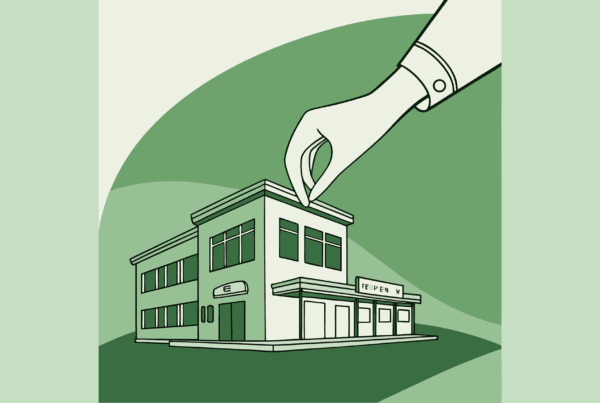The market for cardiology practices is strong, and Raleigh is no exception. A rising demand for cardiovascular care, combined with significant buyer interest, has created a favorable environment for practice owners considering a sale. Making the most of this opportunity requires understanding the market, preparing your practice, and navigating the sale process with a clear strategy. This guide will walk you through the key factors for a successful sale in today’s landscape.
Market Overview
The Raleigh cardiology market is influenced by powerful national trends that create significant opportunities for practice owners. This is not a typical market. It is an environment shaped by high growth and intense buyer interest. If your practice is in or affiliated with an ambulatory surgery center (ASC), its value is likely even higher due to the ongoing shift of cardiovascular care out of hospitals.
Three key trends are driving this opportunity:
- Favorable Economics: The demand for cardiovascular care is rising steadily, but the supply of cardiologists is not keeping pace. This fundamental imbalance creates strong, sustained value for established practices.
- Private Equity Investment: Private equity firms are now major players, acquiring nearly half of all private cardiology practices by 2023. They are actively seeking well-run practices in growth areas like Raleigh to build larger platforms.
- Shift in Care Delivery: The move toward more efficient, out-of-hospital settings like ASCs is accelerating. Practices that are part of this trend are particularly attractive to buyers looking for cost-effective models.
Key Considerations
Beyond national trends, selling your Raleigh practice involves specific local factors. North Carolina’s regulations, for example, generally require physician ownership, which shapes the types of buyers and deal structures possible. Understanding these rules from the start is important to avoid complications.
Your practice’s position within the Raleigh healthcare community is also a major value driver. A strong, documented referral network with local primary care groups and other specialists is more than just a sign of a healthy business. It is a tangible asset that savvy buyers will pay a premium for.
Finally, buyers are not just acquiring your cash flow. They are investing in your practice’s future. We help owners develop a compelling growth story that answers a key question: how will the new owner succeed? This narrative, supported by your financials and operations, is what separates a good price from a great one.
Market Activity
The current M&A market for cardiology is defined by an unprecedented level of activity from well-capitalized buyers. This is not a theoretical trend. It is happening now, and it directly impacts the potential value of your Raleigh practice.
Sophisticated Buyers are Competing
The most active buyers are private equity groups and large, integrated health systems. They are not looking for “fixer-uppers.” They want well-run, profitable practices that can serve as a foundation, or “platform,” for regional growth. Their activity creates competition, which drives up valuations for the most attractive practices.
Valuations Reflect the Demand
This buyer demand is reflected in strong valuation multiples. While a general specialist practice in North Carolina might sell for around 1x revenue, the most sought-after cardiology practices are valued on a multiple of Adjusted EBITDA. For practices with over $1 million in EBITDA, multiples can range from 5.5x to 7.5x or even higher for a strategic platform asset. This is where truly life-changing exits are made.
The Sale Process
Selling your practice is a marathon, not a sprint. Many owners think about selling for years, and we find that the most successful outcomes happen when preparation begins 2-3 years before a transaction. That may sound like a long time, but buyers pay for proven performance, not just potential.
The process itself generally follows a clear path. First comes preparation, where we work with you to clean up financial records, analyze operations, and build the growth story. Next is a formal valuation to establish a credible asking price.
Once prepared, we begin a confidential marketing process, approaching a curated list of qualified buyers without revealing your practice’s identity. After initial offers are received, you select a preferred partner and enter a period of deep-dive due diligence. This is where most deals face challenges if the initial preparation was not thorough. The final stage involves negotiating the definitive agreements and planning for a smooth transition for you, your staff, and your patients.
How Your Practice is Valued
A professional valuation is the foundation of any successful sale. While some may suggest a simple rule of thumb based on revenue, sophisticated buyers value your practice based on its Adjusted EBITDA. This stands for Earnings Before Interest, Taxes, Depreciation, and Amortization. More simply, it represents the true cash flow of your business. We calculate it by taking your net income and adding back owner-specific personal expenses or a non-market-rate salary.
This Adjusted EBITDA figure is then multiplied by a number, the “multiple,” which is determined by the market. Your practice is not just a number. Its story, strengths, and risks all influence this multiple.
| Factor | Lower Multiple | Higher Multiple |
|---|---|---|
| Provider Model | Owner-dependent | Associate-driven, multiple providers |
| Growth | Stagnant patient volume | Clear path to add services/locations |
| Operations | Inefficient billing, high A/R | Strong cash flow, low claim denials |
| Revenue Scale | Under $1M EBITDA | Over $3M EBITDA (Platform Potential) |
Getting this right is critical. We often find that a few months of focused preparation can significantly improve these factors, directly increasing the final valuation.
Post-Sale Considerations
The day the deal closes is not the end of the story. It is the beginning of a new chapter for you, your team, and your practice. Thinking about this future state early in the process is one of the most important things you can do. A smooth transition plan for patients and staff is something buyers value highly. It shows stability and protects the goodwill you have spent a lifetime building.
Your personal and financial goals will also shape the deal structure. You may not want a clean break. Many modern deals involve an equity rollover, where you retain a minority stake in the new, larger entity. This gives you a “second bite at the apple” when that larger group is sold again in 5-7 years.
Other structures might include an earnout, where a portion of the sale price is tied to future performance, or a defined employment agreement for your continued clinical work. The right structure protects your legacy and aligns with your vision for the future.
Frequently Asked Questions
What factors are currently driving the strong market for selling a cardiology practice in Raleigh, NC?
The strong market is driven by a rising demand for cardiovascular care, limited supply of cardiologists, significant private equity investment, and a shift toward delivering care in ambulatory surgery centers (ASCs), which increases practice value.
How does North Carolina’s regulation affect the sale of a cardiology practice?
North Carolina generally requires physician ownership of medical practices, which influences the types of buyers and deal structures possible. Understanding these regulations early on is crucial to avoid complications during the sale.
What valuation multiples can cardiology practices in Raleigh expect when selling?
Valuations are typically based on Adjusted EBITDA. Practices with over $1 million EBITDA can expect multiples ranging from 5.5x to 7.5x, with even higher multiples possible for strategic platform assets. Practices around $1 million or less may see a lower revenue-based multiplier.
What steps should a cardiology practice owner in Raleigh take to prepare for a sale?
Preparation typically starts 2-3 years ahead and includes cleaning financial records, analyzing operations, building a growth story, and obtaining a professional valuation. This thorough preparation can significantly increase the practice’s final sale price.
What are some common post-sale structures that might affect a cardiology practice owner after selling?
Post-sale structures can include equity rollover to retain a minority stake, earnouts tied to future performance, and defined employment agreements for continued clinical work. These options help protect the owner’s legacy and align with their personal and financial goals.



